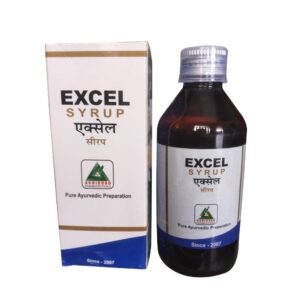VITAMIN + MICRO NUTRIENTS & ANTI OXIDANT + ANTOXIDANTS
Vitamin: Drug Name: Vitamin
Use: Vitamins are essential nutrients that play a crucial role in maintaining overall health. They are organic compounds required in limited quantities for various bodily functions and cannot be produced by the body in sufficient amounts. Vitamins are primarily obtained through a balanced diet or dietary supplements.
Mechanism of Action: Vitamins act as coenzymes or cofactors in many enzymatic reactions in the body. They facilitate numerous metabolic processes, including energy production, cell growth and division, immune function, and the synthesis of essential molecules such as hormones, neurotransmitters, and DNA.
Dose: The appropriate dosage of vitamins depends on factors such as age, sex, and individual health status. It is recommended to follow the Recommended Daily Allowance (RDA) or the dietary guidelines provided by healthcare professionals or nutritionists. Dosages for vitamins are generally measured in micrograms (mcg), milligrams (mg), or international units (IU).
Side Effects: Vitamins, when taken within the recommended dosage, are generally safe and well-tolerated. However, excessive intake of certain vitamins can lead to adverse effects:
1. Vitamin A: High doses of vitamin A can cause symptoms such as nausea, dizziness, headaches, bone and joint pain, and in severe cases, liver damage.
2. Vitamin D: Excessive vitamin D can lead to symptoms like nausea, vomiting, poor appetite, constipation, weakness, and excessive thirst and urination. Long-term overuse can result in high blood calcium levels, which may lead to kidney stones or kidney damage.
3. Vitamin E: High doses of vitamin E can increase the risk of bleeding and may interact negatively with certain medications, such as blood thinners.
4. Vitamin C: Excessive consumption of vitamin C can cause digestive issues like diarrhea, stomach cramps, and nausea. It may also increase the risk of kidney stones in susceptible individuals.
5. Vitamin B complex: Generally safe, but high doses can lead to digestive issues like nausea, vomiting, and diarrhea.
It is important to note that these side effects usually occur with extremely high doses of vitamins and are rare when following the recommended guidelines. It is always suggested to consult with a healthcare professional or a registered dietitian before starting any vitamin supplementation.
Micro Nutrients & Anti Oxidant: Micro Nutrients & Anti Oxidant is a dietary supplement that contains a combination of essential vitamins, minerals, and antioxidants. It is designed to provide necessary nutrients and protect against oxidative stress.
Use:
Micro Nutrients & Anti Oxidant is commonly used as a supplement to support overall health and well-being. It is especially beneficial for individuals with poor dietary intake, certain medical conditions, or a need for additional nutritional support.
Mechanism of Action:
The individual components of Micro Nutrients & Anti Oxidant work together to support various bodily functions. The vitamins and minerals help in the proper functioning of enzymes and metabolic processes. Antioxidants like vitamins C, E, and selenium combat the harmful effects of free radicals, which are unstable molecules that can damage cells and contribute to aging, inflammation, and chronic diseases.
Dose:
The recommended dose of Micro Nutrients & Anti Oxidant may vary based on individual needs and health conditions. It is typically taken orally, and the dosage instructions provided on the product packaging should be followed. It is best to consult a healthcare professional for personalized dosing recommendations.
Side Effects:
Micro Nutrients & Anti Oxidant is generally well-tolerated when taken as directed. However, like any dietary supplement, there is a potential risk of side effects. Some individuals may experience gastrointestinal discomfort, such as nausea, stomach cramps, or diarrhea. Allergic reactions to certain ingredients are also possible, although rare. It is important to read the product label carefully and discontinue use if any adverse effects occur. Consulting a healthcare professional is recommended if there are concerns or questions about potential side effects.
Antoxidants: Antioxidants, as the name suggests, are substances that protect the body from the damaging effects of free radicals, which are unstable molecules that can cause oxidative stress and contribute to various diseases such as cancer, heart disease, and aging.
These substances can be naturally produced by the body or obtained through diet and supplementation. Common antioxidants include vitamins A, C, and E, as well as minerals like selenium and zinc. They are also found in many fruits, vegetables, and other plant-based foods.
The main use of antioxidants is to prevent or reduce the damage caused by free radicals in the body. They help to neutralize these unstable molecules and prevent them from causing harm to cells and tissues. This can have a wide range of health benefits, including improved immune function, reduced risk of chronic diseases, and slower aging process.
The recommended daily dose of antioxidants varies depending on the specific substance and individual needs. However, a balanced diet rich in fruits, vegetables, and whole grains can provide an adequate amount of antioxidants for most people. Some individuals may require supplementation if their dietary intake is inadequate or if they have specific health conditions.
While antioxidants are generally considered safe, there can be potential side effects if taken in excessive amounts. For example, high doses of vitamin E may increase the risk of bleeding or interact with certain medications. Similarly, excessive intake of selenium or beta-carotene can have toxic effects. It is important to follow the recommended dose and consult with a healthcare professional before starting any supplementation.
In summary, antioxidants are essential compounds that help protect the body against the damaging effects of free radicals. They can be obtained through a healthy diet or dietary supplementation. While they offer several health benefits, it is important to use them appropriately and be cautious of potential side effects when taking them in high doses.

